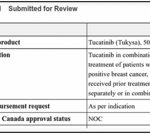
Advancing Towards Precision Medicine: Genetic-Guided Testing for Blood Thinner Drugs
According to a recent scientific statement from the American Heart Association published in Circulation, clinicians can benefit from guidance on using CYP2C19 genetic testing when prescribing oral P2Y12 inhibitor therapy. These medications help prevent the formation of blood clots, which can cause heart attacks and strokes.
A Breakthrough in Blood-Clotting Prevention
The traditional approach has been to prescribe clopidogrel, the most common antiplatelet therapy, regardless of a person’s genetic makeup. However, certain genetic variations in the CYP2C19 gene can impact a person’s ability to metabolize clopidogrel and raise the risk of blood clotting events like stroke or heart attack.
Studies suggest that utilizing CYP2C19 genetic-guided testing to identify poor metabolizers of clopidogrel and prescribing alternative medications can lead to fewer bleeding events as compared to all patients receiving the newer and more potent drugs. “CYP2C19 genetic-guided testing tailors the choice of blood thinners based on a patient’s genetic variants,” says Naveen Pereira, M. D., a Mayo Clinic cardiologist and chair of the group that issued the statement. “The overarching goal is to prescribe the right drug to the right patient to maximize efficacy and minimize toxicity. It is also a cost-effective approach.”
CYP2C19 Gene: A Cardiovascular Drug-Gene Pair with Extensive Clinical Trial Data
Due to its extensive clinical trial data, clopidogrel-CYP2C19 is a cardiovascular drug-gene pair which has a boxed warning on its drug label stating that CYP2C19 poor metabolizers are at a higher risk for blood clotting events when treated with clopidogrel. The label notes that CYP2C19 genetic testing can identify people with these genetic variations. Therefore, approximately 70% of patients who do not have the loss-of-function CYP2C19 genetic variants can safely take clopidogrel, while alternative drugs such as prasugrel or ticagrelor can be prescribed to the 30% of patients who do have it.
Individualized Medicine Using CYP2C19 Genetic Testing
“This precision medicine approach allows physicians to use this information to guide treatment decisions,” says Dr. Pereira. “The extensive clinical evidence supports CYP2C19 genetic testing, especially for patients with heart attacks and those who have undergone angioplasty or stent procedures.”
What’s Next: Adopting Point-of-Care Genetic Testing?
Whether clinicians request CYP2C19 genetic testing to guide the use of antiplatelet drugs will depend on several guidelines, including recently published evidence, adoption of point-of-care genetic testing, timely availability of results, integration of results in the electronic health record, education to support understanding and interpretation of results, and reimbursement by insurance companies.
Alternative Medications Available As Part Of Personalized Medicine
While clopidogrel remains the go-to medication for most patients, the development of CYP2C19 genetic-test guiding will mean that physicians can prescribe alternatives such as prasugrel or ticagrelor for those patients who are identified as poor metabolizers. This level of individualization will not only be cost-effective in terms of patient outcomes, but it will also mark a significant shift towards personalized medicine in this area.
Personalized Medicine: What it is and What it Means for the Future of Healthcare
Personalized medicine represents an emerging approach which tailors individual medical treatments and interventions based on a patient’s unique genetic composition. Pharmaco-genomic testing of genes like CYP2C19 is a prime example of this. As we continue to develop our understanding of genetic factors associated with disease, personalized medicine offers a future where genomics, combined with emerging technologies, will enable us to move towards a model of care that provides clinicians with more refined, tailored and effective therapies, significantly impacting the future of healthcare.
In conclusion, advancing towards precision medicine using CYP2C19 genetic testing is a significant step towards personalized medicine. Administering the right drug to the right patient is crucial in minimizing toxicity while maximizing efficacy. This personalized approach will help usher in a new era of medicine; one where the patient is at the center of care through tailor-made systems that stem from her/his unique genomic characteristics.
Originally Post From https://newsnetwork.mayoclinic.org/discussion/a-scientific-statement-from-the-american-heart-association/


